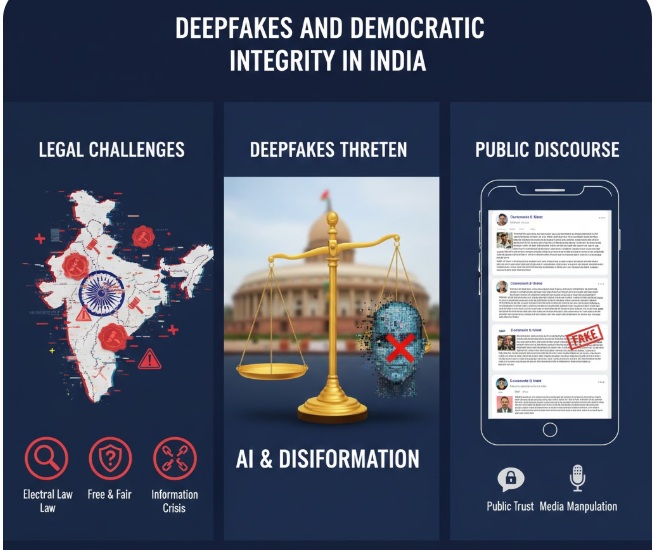Published On: September 4th 2025
Authored By: Kiriti Kala
Amity University
Court: Supreme Court of India
Bench: Chief Justice S.A. Bobde, Justices A.S. Bopanna and V. Ramasubramanian
Date of Judgment: March 26, 2021
Relevant Provisions / Statutes
- Companies Act, 2013:
- 2(68) – Definition of “private company”
- 2(71) – Definition of the “public company”
- 241 – Application to Tribunal for relief in cases of oppression
- 242 – Powers of Tribunal to provide relief
- 244 – Right to apply under Section 241
- Articles of Association of Tata Sons: The Articles of Association played a central role in this case. They granted significant powers to the Tata Trusts, which controlled over 66% of Tata Sons’ equity, particularly in nominating the Executive Chairman and influencing key governance decisions. These Articles were legally binding on shareholders and governed internal processes, including executive appointments and dismissals. The Supreme Court upheld the validity of such provisions, noting that actions taken under a company’s Articles must be respected so long as they do not breach statutory norms or result in demonstrable prejudice to minority stakeholders.
Brief Background
In 2012, Cyrus Mistry was appointed as Executive Chairman of Tata Sons, succeeding Ratan Tata. However, in 2016, Mistry was removed from this role by the company’s Board without prior notice or detailed explanation. Though he continued as a director temporarily, he later resigned and challenged his removal legally, asserting it was arbitrary and in violation of his rights as a minority shareholder.
Through Cyrus Investments Pvt. Ltd. and Sterling Investment Corp., the Mistry family held approximately 18.4% in Tata Sons. Mistry claimed that he was ousted for raising concerns over legacy transactions and strategic decisions previously undertaken during Ratan Tata’s leadership. He alleged that the dominant shareholders—the Tata Trusts—had overridden boardroom protocols and consolidated control without proper checks.
The dispute escalated in 2017 when Tata Sons converted itself from a public limited to a private limited company. Mistry’s side argued that this transformation lacked transparency and was aimed at reducing scrutiny and curtailing shareholder rights, particularly the right to transfer shares freely. They alleged that such a move violated the principles of fair corporate governance and minority protection.
The Shapoorji Pallonji Group, led by Cyrus Mistry, filed a petition before the National Company Law Tribunal (NCLT) under Sections 241 and 242 of the Companies Act, 2013, alleging oppression and mismanagement by Tata Sons. The NCLT, however, dismissed their claims, finding no evidence to support the allegations. Unexpectedly, the National Company Law Appellate Tribunal (NCLAT) reversed this decision, reinstated Mistry as Executive Chairman, and held the conversion of Tata Sons into a private company as unlawful. Challenging this ruling, Tata Sons filed an appeal before the Supreme Court, which ultimately overturned the NCLAT’s judgment in Tata’s favour.
Key Legal Issues
- Whether the removal of Cyrus Mistry as Executive Chairman amounted to oppression under § 241 of the Companies Act, 2013, and whether it was carried out in bad faith.
- Whether the conversion of Tata Sons from a public to a private company violated corporate governance norms or statutory provisions, and if due process was followed.
- Whether the affairs of Tata Sons were conducted in a manner that prejudiced the interests of minority shareholders, particularly under §§ 241–242.
- Whether the National Company Law Appellate Tribunal (NCLAT) acted beyond its jurisdiction by reinstating Mistry and invalidating Tata Sons’ reclassification without sufficient legal basis.
Supreme Court Verdict
The Supreme Court of India set aside the NCLAT’s ruling and held that there was no evidence of oppression or mismanagement in Mistry’s removal. It stated that decisions regarding top executive roles fall within the authority of the Board of Directors, and if such decisions follow corporate procedure, they cannot be deemed unlawful or oppressive.
The Court emphasized that not all corporate disputes qualify as statutory oppression. It clarified that boardroom disagreements or changes in leadership, even if abrupt, do not breach the Companies Act, 2013 unless they involve clear illegality, bad faith, or harm to the company’s integrity or stakeholders.
Further, the conversion of Tata Sons into a private company was upheld. The Court noted that the reclassification was carried out per the process outlined under §§ 13 and 14 of the Companies Act, 2013, and duly approved by the Registrar of Companies. It rejected claims that the conversion was a covert attempt to restrict shareholder rights.
The Court criticized the NCLAT for overreaching its jurisdiction, asserting that appellate bodies must not interfere in matters of internal corporate policy unless statutory rights are clearly violated. The NCLAT’s direction to reinstate Mistry, it held, was beyond its authority.
Ratio Decidendi
- Corporate decisions taken by the majority shareholders in accordance with the Articles and statutory provisions are not subject to judicial scrutiny unless they are illegal, fraudulent, or oppressive.
- Removal from an executive position does not amount to oppression, particularly when the person continues to retain shareholding and/or a seat on the Board.
- Section 241 is designed to protect minority shareholders only in cases of conduct that is seriously prejudicial—not personal or managerial disagreements.
- Courts must practice judicial restraint in matters of business judgment unless there’s a breach of fiduciary duty or malafide action.
Legal Outcome
In its landmark ruling, the Supreme Court of India ultimately favoured Tata Sons, rejecting the claims brought by the Shapoorji Pallonji Group. The Court concluded that the removal of Cyrus Mistry as Executive Chairman did not amount to oppression or mismanagement as defined under Sections 241 and 242 of the Companies Act, 2013. It emphasized that boardroom decisions—especially those concerning leadership roles—fall well within the scope of corporate autonomy, provided they are carried out in accordance with the company’s Articles of Association and statutory procedures.
The Court further upheld the legality of Tata Sons’ decision to convert from a public limited company to a private limited one. It observed that the conversion had been properly executed, with due approval from the Registrar of Companies, and did not violate any rights of the minority shareholders. The process followed was lawful, transparent, and consistent with the applicable corporate regulations.
By overturning the NCLAT’s ruling, the Supreme Court sent a strong message about the limits of judicial interference in corporate affairs. It highlighted that courts and tribunals are not intended to micromanage internal business decisions unless there is substantial evidence of illegality, fraud, or prejudice to shareholder interests. This judgment reaffirmed the principle of corporate self-governance and underscored the importance of respecting majority decisions within the company’s legal framework. Internal conflicts, unless legally significant, are best resolved within the boardroom rather than through prolonged litigation before judicial forums.
Conclusion & Legal Significance
The Tata-Mistry judgment is widely seen as a milestone in Indian corporate jurisprudence, clarifying the scope of minority shareholder protection and judicial interference in corporate matters. The Court made a clear distinction between legitimate concerns and boardroom politics, reiterating that not every fallout in management amounts to legal oppression.
The ruling confirmed that corporate democracy must function within the Articles of Association, and that courts are not meant to act as supervisory boards unless laws are being violated. By recognizing the Board’s autonomy to make key decisions, including structural and leadership changes, the Court provided much-needed clarity on the limits of tribunal jurisdiction.
Importantly, by validating the conversion of Tata Sons into a private company, the Court affirmed that companies have the legal right to restructure in line with their strategic vision, if the process is legally sound and transparent.
Ultimately, the judgment ensures that corporate decision-making remains business-driven rather than litigation-driven, balancing the interests of minority shareholders with the need for majority-led governance. It provides a strong foundation for corporate governance in India and is likely to guide future disputes involving shareholder rights and managerial autonomy.
References
- Tata Sons Pvt. Ltd. v. Cyrus Investments Pvt. Ltd., (2021) 9 SCC 1 (India).
- S.P. Jain v. Kalinga Tubes Ltd., AIR 1965 SC 1535 (India).
- Ramesh B. Desai v. Bipin Vadilal Mehta, (2006) 5 SCC 638 (India).
- Dale & Carrington Invt. (P) Ltd. v. P.K. Prathapan, (2005) 1 SCC 212 (India).
- Life Insurance Corp. of India v. Escorts Ltd., (1986) 1 SCC 264 (India).
- Mohanlal Ganpatram v. Shri Sayaji Jubilee Cotton & Jute Mills Co. Ltd., (1964) 34 Comp Cas 777 (Guj) (India).
- Miheer H. Mafatlal v. Mafatlal Indus. Ltd., (1997) 1 SCC 579 (India).
- Companies Act, 2013, §§ 2(68), 2(71), 13, 14, 241–244 (India).



